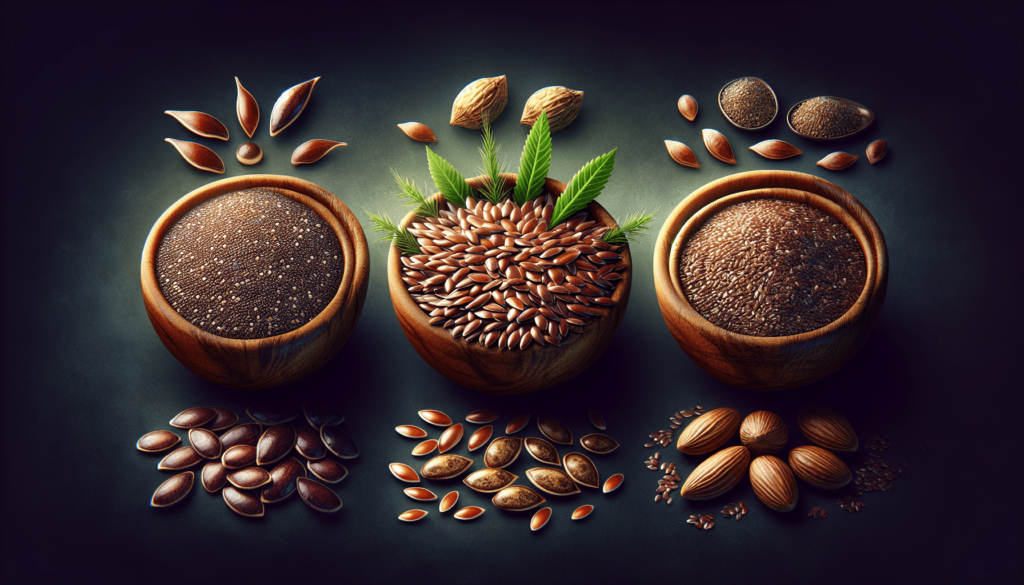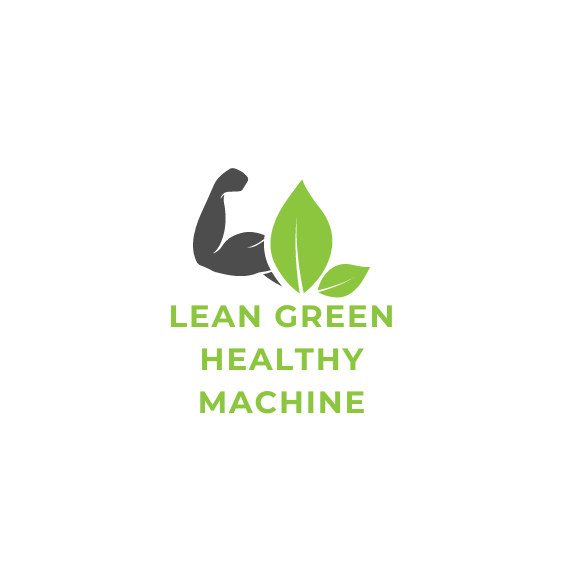Are you ready to embark on a journey towards better health and vitality? Look no further than the power of seeds – those tiny wonders that can make a big impact on your well-being. In this article, we’ll explore the incredible benefits of three super seeds – chia, flax, and hemp – that are packed with omega-3 fatty acids. These little powerhouses promote heart health, boost brain function, and support a robust immune system. Get ready to discover how these seeds can be easily incorporated into your daily diet, and unlock a future brimming with vitality. Let’s dive in and explore the incredible potential these seeds hold for your overall well-being.
Introduction
The importance of omega-3 fatty acids
In the quest for optimal health, it’s essential to pay attention to the nutrients we consume. One nutrient that has gained significant attention in recent years is omega-3 fatty acids. These essential fats play a crucial role in maintaining our overall well-being and preventing various health conditions. From supporting heart health to promoting brain function, omega-3s are truly a powerhouse nutrient.
Superfoods for omega-3 power
When it comes to incorporating omega-3s into your diet, there are several superfoods that stand out for their rich content of these beneficial fats. Chia seeds, flax seeds, and hemp seeds are among the top contenders in this category. Not only are these seeds packed with omega-3s, but they also offer a myriad of other health benefits. By including these superfoods in your meals, you can take a proactive step towards enhancing your health and wellness.
Benefits of chia, flax, and hemp seeds
Chia seeds, flax seeds, and hemp seeds are not only incredible sources of omega-3 fatty acids, but they also boast an impressive nutritional profile. These tiny powerhouses are packed with vitamins, minerals, fiber, and protein, making them an excellent addition to a balanced diet. By incorporating chia, flax, and hemp seeds into your meals, you can enjoy numerous benefits, such as improved heart health, enhanced brain function, increased energy levels, and better digestion. Now, let’s dig deeper and explore these super seeds in detail.
Understanding Omega-3 Fatty Acids
What are omega-3 fatty acids?
Omega-3 fatty acids are a group of polyunsaturated fats that are considered essential because our bodies are unable to produce them on their own. These fats play a crucial role in maintaining optimal health and are primarily known for their anti-inflammatory properties. There are three main types of omega-3s: alpha-linolenic acid (ALA), eicosapentaenoic acid (EPA), and docosahexaenoic acid (DHA).
Different types of omega-3s
ALA is primarily found in plant-based sources, such as chia seeds, flax seeds, and hemp seeds. EPA and DHA, on the other hand, are predominantly found in fatty fish like salmon, mackerel, and sardines. While the body can convert ALA into EPA and DHA, the conversion is not very efficient. Therefore, it is crucial to obtain EPA and DHA directly from dietary sources or through supplementation.
Importance of omega-3s for health
Omega-3 fatty acids play a vital role in maintaining overall health and well-being. They have been shown to reduce inflammation, support heart health by improving cholesterol levels and reducing blood pressure, enhance brain function, promote healthy skin, and support eye health. Getting an adequate amount of omega-3s in your diet is essential for optimal health and can help prevent chronic diseases like heart disease, diabetes, and certain types of cancers.

Chia Seeds: Tiny Powerhouses
Overview of chia seeds
Chia seeds, originating from the Salvia hispanica plant, have been used for centuries as a source of sustainable energy. Native to Central and South America, these tiny seeds were highly valued by ancient civilizations for their exceptional nutritional properties. In recent years, chia seeds have gained popularity worldwide due to their numerous health benefits.
Nutritional profile of chia seeds
Despite their small size, chia seeds are packed with essential nutrients. These tiny powerhouses are an excellent source of fiber, protein, calcium, magnesium, phosphorus, and manganese. They also contain a good amount of antioxidants, which help protect the body against free radicals and oxidative stress.
Omega-3 content in chia seeds
Chia seeds are renowned for their high omega-3 fatty acid content. Gram for gram, chia seeds are one of the richest plant-based sources of omega-3s. In fact, they contain even more omega-3s than traditional sources like flax seeds. These omega-3 fatty acids are predominantly in the form of ALA, which the body converts into EPA and DHA, although the conversion rate is limited.
Health benefits of chia seeds
By incorporating chia seeds into your diet, you can enjoy a wide range of health benefits. Their high fiber content promotes healthy digestion and helps regulate blood sugar levels. Chia seeds are also known for their ability to promote satiety, making them a valuable addition to weight management efforts. Additionally, chia seeds have been shown to support heart health, lower inflammation, improve bone strength, and enhance cognitive function.
Ways to incorporate chia seeds into your diet
There are numerous creative ways to incorporate chia seeds into your daily meals. You can sprinkle them on top of your yogurt, oatmeal, or smoothies for an added nutritional boost. Chia seeds can also be used as an egg substitute in baking, making them suitable for vegan recipes. Another popular way to enjoy chia seeds is by making chia seed pudding, which can be flavored with various fruits and spices. The versatility of chia seeds makes them an easy and delicious addition to any diet.
Flax Seeds: Nutritional Dynamos
Overview of flax seeds
Flax seeds, also known as linseeds, have been cultivated for thousands of years and have a rich history of medicinal and culinary uses. Native to the Middle East and India, flax seeds are derived from the flax plant, known scientifically as Linum usitatissimum. These small, brown or golden seeds are highly nutritious and have gained popularity for their impressive health benefits.
Nutritional profile of flax seeds
Flax seeds are packed with essential nutrients that contribute to overall health and well-being. They are an excellent source of fiber, protein, magnesium, manganese, and thiamine. Flax seeds are also rich in lignans, a type of phytoestrogen that has antioxidant and estrogenic properties.
Omega-3 content in flax seeds
Similar to chia seeds, flax seeds are an excellent plant-based source of omega-3 fatty acids. In fact, flax seeds contain even more omega-3s than chia seeds. These tiny seeds are packed with ALA, which can be converted by the body into EPA and DHA, although the conversion rate is limited. Including flax seeds in your diet is a great way to increase your omega-3 intake, especially for those following a plant-based diet.
Health benefits of flax seeds
Flax seeds offer a variety of health benefits due to their impressive nutritional profile. The high fiber content promotes healthy digestion, aids in weight management, and helps regulate blood sugar levels. Flax seeds have also been associated with a reduced risk of heart disease, improved levels of cholesterol and blood pressure, and decreased inflammation. Additionally, the lignans found in flax seeds have been studied for their potential anticancer properties.
Ways to incorporate flax seeds into your diet
Flax seeds can be incorporated into your diet in several ways. They can be ground into a fine powder using a coffee grinder or purchased pre-ground. Ground flax seeds can be added to smoothies, yogurt, oatmeal, or baked goods like muffins and bread. They can also be used as an egg substitute in recipes. It’s important to note that whole flax seeds may pass through the digestive system undigested, so it is recommended to consume ground flax seeds for optimal nutrient absorption.

Hemp Seeds: The Complete Protein
Overview of hemp seeds
Hemp seeds, derived from the Cannabis sativa plant, have gained widespread recognition for their exceptional nutritional profile. Unlike its cousin marijuana, hemp seeds do not contain the psychoactive compound THC and are safe for consumption. Hemp seeds have been used as a food source for thousands of years and are known for their versatility and health benefits.
Nutritional profile of hemp seeds
Hemp seeds are a nutritional powerhouse, providing a wide array of essential nutrients. They are an excellent source of protein, providing all nine essential amino acids, making them a complete source of plant-based protein. Hemp seeds are also rich in healthy fats, fiber, magnesium, phosphorus, and vitamin E.
Omega-3 content in hemp seeds
Hemp seeds are a valuable source of omega-3 fatty acids. They contain a balanced ratio of omega-3 to omega-6, which is beneficial for maintaining optimal health. The omega-3 fatty acids in hemp seeds are predominantly in the form of ALA, which can be converted into EPA and DHA, although the conversion rate is limited. By incorporating hemp seeds into your diet, you can easily boost your omega-3 intake while enjoying the other nutritional benefits they provide.
Health benefits of hemp seeds
The nutritional composition of hemp seeds contributes to their numerous health benefits. The high protein content makes them an excellent option for vegetarians and vegans looking to meet their protein needs. Hemp seeds also help support heart health by reducing inflammation, improving cholesterol levels, and regulating blood pressure. They offer digestive benefits, contribute to healthy skin and hair, and support immune function. Additionally, the healthy fats found in hemp seeds have been associated with improved brain function and reduced risk of certain chronic diseases.
Ways to incorporate hemp seeds into your diet
Hemp seeds can be easily incorporated into various dishes to enhance their nutritional value. They have a mild, nutty flavor that pairs well with both sweet and savory foods. Hemp seeds can be sprinkled on top of salads, roasted vegetables, or added to smoothies for an extra nutrient boost. They can also be ground into hemp seed butter, used in homemade energy bars, or added to baked goods like bread and cookies. The versatility of hemp seeds makes them a fantastic addition to any diet.
Comparing Chia, Flax, and Hemp Seeds
Omega-3 content comparison
When it comes to omega-3 fatty acid content, chia seeds, flax seeds, and hemp seeds are all excellent choices. Chia seeds contain the highest amount of omega-3s per gram, followed closely by flax seeds. Hemp seeds, although slightly lower in omega-3s, still offer a significant amount and have the added benefit of providing a balanced omega-3 to omega-6 ratio.
Other nutrients and benefits
In addition to omega-3 fatty acids, these super seeds offer a range of other essential nutrients. Chia seeds are rich in fiber, antioxidants, calcium, and phosphorus. Flax seeds are known for their lignan content and also provide fiber, magnesium, and thiamine. Hemp seeds stand out for their complete protein profile, offering all nine essential amino acids, as well as magnesium, phosphorus, and vitamin E.
Taste and texture differences
Each seed has its own unique taste and texture. Chia seeds have a mild, nutty flavor and a gelatinous texture when soaked in liquid. Flax seeds have a slightly nutty taste and a crunchy texture. Hemp seeds have a delicate, nutty flavor and a soft, creamy texture. These taste and texture differences allow you to choose the seed that best suits your preferences and the dish you are preparing.
Suitability for various dietary preferences
Chia seeds, flax seeds, and hemp seeds are incredibly versatile and suitable for a wide range of dietary preferences. All three seeds are gluten-free, making them an excellent option for individuals with gluten sensitivities or celiac disease. They are also suitable for vegetarians and vegans, providing a valuable source of plant-based protein. Additionally, these seeds can be easily incorporated into both sweet and savory dishes, making them a fantastic choice for anyone looking to enhance the nutritional value of their meals.
Tips for Buying and Storing Seeds
Choosing high-quality seeds
When purchasing chia seeds, flax seeds, or hemp seeds, it’s important to choose high-quality products. Look for seeds that are organic and have been third-party tested for purity and quality. Buying from reputable brands can help ensure that you are getting the freshest and most nutrient-dense seeds.
Storage recommendations
To maintain the freshness and nutritional integrity of your seeds, it’s essential to store them properly. Chia seeds, flax seeds, and hemp seeds should be stored in airtight containers in a cool, dark place, such as a pantry or refrigerator. This will help prevent the seeds from going rancid and maintain their optimal nutritional value.
How to ensure freshness
To ensure that your seeds remain fresh, it’s recommended to buy in small quantities and use them within a reasonable time frame. Check the expiration date on the packaging and discard any seeds that are past their expiration date or have an off smell or taste. Keeping your seeds fresh will ensure that you are getting the maximum nutritional benefits from them.
Recipes and Ideas
Omega-3 packed smoothie recipe
Start your day off right with an omega-3 packed smoothie. In a blender, combine 1 cup of unsweetened almond milk, 1 ripe banana, 1 tablespoon of chia seeds, 1 tablespoon of ground flax seeds, 1 tablespoon of hemp seeds, 1 tablespoon of almond butter, and a handful of spinach or kale. Blend until smooth and enjoy this delicious and nutritious smoothie that will provide you with a dose of omega-3s and other essential nutrients.
Chia seed pudding variations
Chia seed pudding is a versatile and nutritious dessert or snack option. In a jar, combine 2 tablespoons of chia seeds with 1 cup of your choice of milk (such as almond milk or coconut milk). Sweeten with a natural sweetener like honey or maple syrup, and flavor with vanilla extract or a sprinkle of cinnamon. Mix well, and refrigerate overnight or for at least 4 hours. Top with fresh fruit, nuts, or coconut flakes for added flavor and enjoy!
Flaxseed crackers for a healthy snack
For a healthy and satisfying snack, try making flaxseed crackers. In a bowl, mix 1 cup of ground flax seeds, 1/4 cup of water, 1/4 teaspoon of salt, and any desired herbs or spices. Let the mixture sit for 10 minutes to allow it to gel together. Spread the mixture onto a baking sheet lined with parchment paper and score into squares or rectangles with a knife. Bake at 350°F (175°C) for 20-25 minutes, or until crisp. Allow to cool before breaking into crackers.
Hemp seed salad dressing
Whisk together 2 tablespoons of hemp seeds, 1 tablespoon of apple cider vinegar, 1 tablespoon of lemon juice, 1 tablespoon of olive oil, 1 teaspoon of dijon mustard, 1 clove of garlic (minced), and salt and pepper to taste. Drizzle this delicious and nutritious hemp seed salad dressing over your favorite salads for a boost of omega-3s and other beneficial nutrients.
Creative ways to use seeds in baking
Add a nutritional boost to your favorite baked goods by incorporating seeds into your recipes. Sprinkle chia seeds, flax seeds, or hemp seeds into muffin batters, bread doughs, or cookie doughs for added texture and nutritional value. You can also use ground flax seeds or chia seeds mixed with water as an egg substitute in baking recipes.
Safety Precautions and Considerations
Allergies and potential side effects
While chia seeds, flax seeds, and hemp seeds are generally safe for consumption, it’s essential to be aware of potential allergies and side effects. Some individuals may be allergic to these seeds, so it’s always best to start with a small amount to see if any adverse reactions occur. Additionally, consuming large amounts of these seeds without proper hydration can cause digestive discomfort. Keep in mind that moderation is key when incorporating these seeds into your diet.
Portion control and moderation
Although chia seeds, flax seeds, and hemp seeds offer numerous health benefits, it’s important to practice portion control and moderation. These seeds are highly nutritious but also calorie-dense. To avoid excessive calorie intake, it’s best to consume them in moderation as part of a well-balanced diet.
Consultation with a healthcare professional
If you have any underlying health conditions, are taking medications, or have specific dietary concerns, it is advisable to consult with a healthcare professional before significantly increasing your intake of chia seeds, flax seeds, or hemp seeds. They can provide personalized guidance and ensure that adding these seeds to your diet aligns with your individual health needs.
Conclusion
Harnessing the power of chia seeds, flax seeds, and hemp seeds can have a profound impact on your health and well-being. These super seeds not only provide a rich source of omega-3 fatty acids but also offer a multitude of other essential nutrients. By incorporating chia, flax, and hemp seeds into your diet, you can enjoy the numerous health benefits they provide, from supporting heart health and promoting brain function to enhancing digestion and improving immune function. So go ahead and start incorporating these powerhouse seeds into your meals, and savor the health benefits they bring. Embrace the journey towards better health and unlock a future brimming with vitality.

